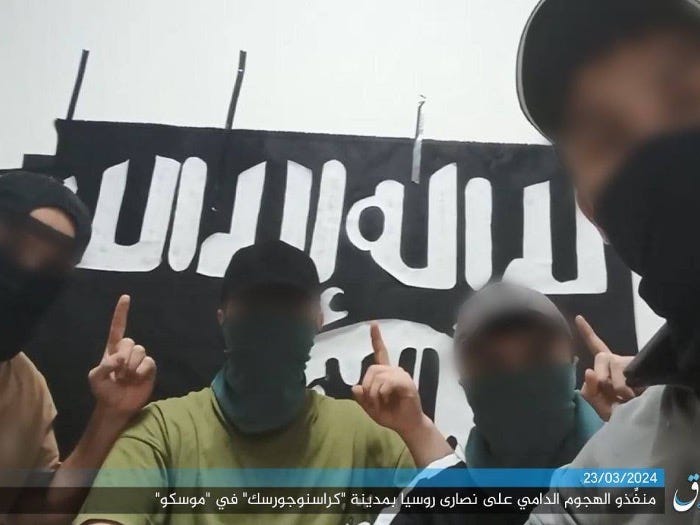Continued Fallout From ISKP Moscow Attack
Moscow Attack and ISKP
On the evening of March 22, a horrific attack unfolded at Crocus City Hall, a concert venue near Moscow. The Islamic State (IS) claimed responsibility for the attack, carried out by four armed men who stormed the venue during a sold-out concert. The assault resulted in at least 140 fatalities, including three children, and left 150 others injured. As fires spread and the building collapsed, the attackers fled the scene.
Footage from body cameras worn by the assailants depicted the brutality of the attack, including shootings and attempted beheadings. The attackers, identified as Tajik citizens, were later captured by Russian authorities, showing signs of torture. IS condemned the treatment of the suspects and issued threats against Russia.
The attack was attributed to IS's Afghan affiliate, ISKP, which has been increasingly active in external operations, targeting countries beyond Afghanistan. The assailants' profiles align with ISKP's recruitment efforts in Central Asia.
The hostility toward Russia stems from historical grievances, including Russia's military interventions and counterinsurgency campaigns in Muslim-majority regions. ISKP's propaganda portrays Russia as an enemy of Islam.
ISKP's operations extend beyond Afghanistan, with attacks in Iran, Turkey, and now Russia. The group's ability to recruit across nationalities and spread propaganda in multiple languages facilitates its transnational activities.
The attack in Moscow follows heightened security alerts across Europe, indicating ISKP's intent to target large gatherings. France, Italy, and other European countries have raised their terror threat levels in response to ISKP's threats.
Central Asian nationals have been involved in ISKP's plots across various countries, highlighting the group's recruitment efforts in the region. Stigmatization of Central Asians by Russian officials could exacerbate grievances and fuel ISKP's recruitment drive.
In conclusion, the Moscow attack underscores ISKP's expanding reach and the need for international cooperation to combat its threats. It also highlights the complex dynamics driving extremism, including historical grievances and geopolitical tensions.
https://eurasianet.org/moscow-attack-signals-broadening-footprint-of-iskps-central-asia-contingent
Russia’s Foreign Mercenaries





